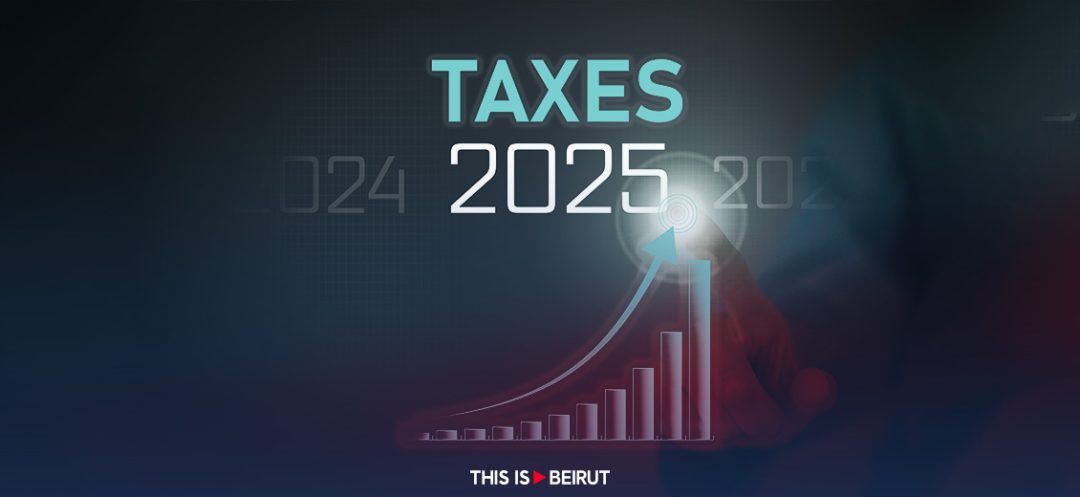
Caretaker Minister of Finance Youssef Khalil affirmed the Ministry's commitment to delivering the 2025 budget within its Constitutional deadline. However, this has sparked significant controversy among citizens, particularly as the budget items will primarily rely on imposing additional taxes to cover the Lebanese State's expenses. This pattern echoes previous budgets, highlighting the state's “indecency” through steep tax hikes and fines, overlooking any reform measures.
Once again, the government attempts to pass its financial burden onto citizens and the legitimate economy. The caretaker Minister of Finance, Youssef Khalil, reiterated the Ministry's commitment to delivering the 2025 budget within its Constitutional time. He urged all institutions, bodies, councils and public funds benefiting from financial allocations outlined in the budget to submit their budget projects to the Ministry of Finance by the end of May. These submissions should include comprehensive justifications, statistics and necessary explanations regarding their expenditures and revenues.
This announcement has sparked significant controversy among citizens, particularly as the budget items will primarily rely on imposing additional taxes to cover the Lebanese State’s expenses. This echoes previous budgets, which exposed the state's “indecency” through steep tax hikes and fines, overlooking any reform measures.
Will Lebanese people face more taxes next year?
Economic expert Dr. Talib Saad, speaking to Houna Loubnan, elucidates, “In the private sector, companies usually craft budgets to delineate their future plans, objectives and developmental projects through financial projections covering several upcoming years. They strive to implement requisite adjustments and enhancements to meet their financial goals. The annual budget reflects the company's operational progress and acts as a tool to facilitate more efficient financial management. On a national scale, each country formulates an annual budget estimate. This entails forecasting figures that represent the anticipated general revenues the state will receive, as well as the general expenses required to fulfill its economic, social and financial objectives during the upcoming fiscal year.”
Unfortunately, in Lebanon, the state rushes to announce the 2025 budget, yet little has changed, rendering it a mere “replica” of the 2024 budget and those before it. Crafting the budget within the current political climate in Lebanon is nothing but “formality.” The government's primary concern is to demonstrate to international entities that it has completed its tasks constitutionally, officially and formally. Therefore, the budget was crafted without addressing its complete void of national, social and economic value, according to Saad.
“The Ministry of Finance is urging ministries to submit their financial plans and projects. However, as of now, neither the Ministry nor other ministries have concrete plans in place. They only strive to cover expenses and salaries. Budgeting has become a mere means of sustaining the weakened public sector, with little endeavor directed towards presenting a budget aimed at state development, addressing crumbling infrastructure, initiating expansion projects, encouraging investment, or attracting capital, much of which is either held abroad or within banks,” he adds.
Moreover, “as with previous budgets, including those of 2023 and 2024, the primary role was that of tax collection and fee hikes, without fairness or feasibility studies. They relied solely on raising taxes and fees to secure revenue and finance expenses, regardless of the adverse effects on society and purchasing power.”
Saad considers “this approach potentially constituting financial crimes, particularly in a country enduring economic crises for years. He notes that these increases come in two forms: directly imposed taxes and indirectly imposed taxes.”
He indicates as well that “paying taxes in dollars has become burdensome for citizens without foreign currency income and those with limited to moderate earnings.”
In essence, the current budget primarily focuses on financing the unproductive public sector and securing its revenue stream, aiming for a “zero” deficit budget with minimal shortfalls. However, in all cases, it represents a regressive financial strategy that will perpetuate the balance of payments deficit and the trade deficit, currently standing at around $14.5 billion, owing to declining exports and increasing imports, particularly in consumer goods rather than productive ones.
“The 2025 budget is unlikely to enact any substantial change given the unchanged governmental policies and practices. Today, the government lacks forward-looking financial plans and visions. It will be a continuation of the past three budgets in terms of reliance on tax revenues tied to the dollar, constant funding of the public sector, and absence of reform plans; in addition to the unresolved issue of banking deposits that persists,” Saad asserts.
He contends that “regarding the underlying issues within the 2025 budget, akin to its predecessors, the Minister of Finance will be granted unprecedented authority, enabling indirect legislation to facilitate money laundering through certain provisions observed in previous budgets, a pattern expected to persist in the upcoming fiscal year.”
He concludes by stating, “The 2025 budget is merely a façade presented to the International Monetary Fund, suggesting that the state seeks reform without any substantive economic plan in place."
Read more



Comments